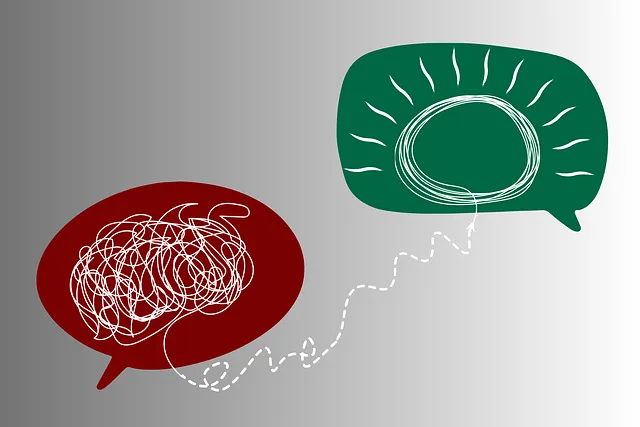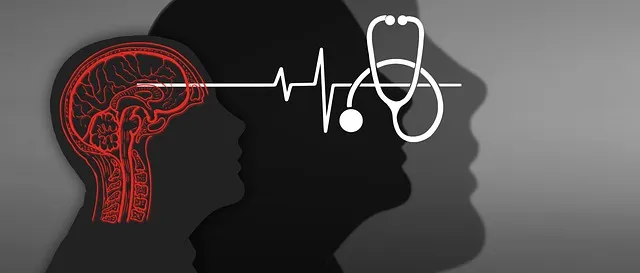Burnout among healthcare providers at Wheat Ridge Kaiser Permanente is addressed through prioritizing mental wellness. Strategies include Mental Wellness Journaling Exercises, Empathy Building Techniques, and accessible mental health appointments (using the dedicated number). These initiatives aim to combat chronic stress, exhaustion, and detachment from work, improving both mental health and patient outcomes. By encouraging self-care, risk assessments, and practical tips like journaling, Wheat Ridge Kaiser Permanente fosters a culture that maintains staff engagement and quality care. Measuring program effectiveness through metrics like stress levels and appointment numbers demonstrates success in burnout prevention.
Healthcare provider burnout is a growing concern, impacting patient care and organizational success. This article explores comprehensive strategies to prevent burnout among healthcare workers, focusing on innovative approaches like Wheat Ridge Kaiser Permanente’s model for mental health support. We delve into effective tactics from healthcare settings, emphasizing self-care and work-life balance. Additionally, we discuss measuring success through monitoring and evaluating burnout prevention programs, including insights on seeking mental health resources, such as the Wheat Ridge Kaiser Permanente appointment number, to foster a healthier workforce.
- Understanding Burnout Among Healthcare Providers: Causes and Impact
- Wheat Ridge Kaiser Permanente's Approach to Mental Health Support
- Effective Strategies for Burnout Prevention in Healthcare Settings
- The Role of Self-Care and Work-Life Balance in Reducing Burnout
- Measuring Success: Monitoring and Evaluating Burnout Prevention Programs
Understanding Burnout Among Healthcare Providers: Causes and Impact

Burnout among healthcare providers is a growing concern, impacting their well-being and patient care quality. It stems from various factors, primarily prolonged exposure to high-stress situations, heavy workloads, and emotional demands. Healthcare professionals, especially those in frontline roles like Wheat Ridge Kaiser Permanente, often juggle demanding schedules with complex patient needs, leaving little time for self-care. This constant pressure can lead to chronic stress, exhaustion, and a detachment from one’s work, known as burnout.
The consequences of burnout are significant. It may cause mental health issues such as anxiety and depression, leading some providers to seek Trauma Support Services. Additionally, it negatively affects patient outcomes; burnt-out doctors and nurses may exhibit reduced empathy, making it challenging to connect with patients and offer the necessary support. This can be mitigated by incorporating strategies like Mental Wellness Journaling Exercises and Empathy Building Techniques into their routines to foster resilience and maintain a healthy work-life balance.
Wheat Ridge Kaiser Permanente's Approach to Mental Health Support

Wheat Ridge Kaiser Permanente takes a proactive approach to addressing healthcare provider burnout, prioritizing mental health and well-being as essential components of their professional support system. They recognize that burnout prevention is crucial for maintaining a dedicated and resilient workforce, which directly impacts patient care. This commitment has led to the implementation of various initiatives, including regular mental health appointments facilitated by an assigned number for access, ensuring providers can receive timely support.
Through these appointments, Wheat Ridge Kaiser Permanente encourages compassion cultivation practices, providing a safe space for professionals to discuss challenges, share experiences, and explore strategies to enhance resilience. Additionally, they offer a Mental Wellness Podcast Series Production, offering valuable insights and practical tips on managing stress, cultivating mindfulness, and promoting overall mental wellness. These efforts demonstrate the organization’s dedication to fostering a culture of care and support, ultimately contributing to better burnout prevention among healthcare providers.
Effective Strategies for Burnout Prevention in Healthcare Settings

Burnout among healthcare providers is a growing concern, but effective strategies can help mitigate this issue. At Wheat Ridge Kaiser Permanente, for instance, mental health appointment numbers have been increasing as staff recognize the importance of addressing well-being. One key strategy involves Self-Care Routine Development for Better Mental Health. Encouraging employees to prioritize self-care activities such as regular exercise, adequate sleep, and balanced nutrition can significantly enhance resilience to stress. Additionally, Mental Wellness Journaling Exercise Guidance can offer a safe space for providers to process their experiences, emotions, and challenges, fostering better coping mechanisms.
Another vital approach is incorporating structured risk assessments for mental health professionals. Regular evaluations can identify early signs of burnout or distress, allowing for timely interventions like counseling services, stress management workshops, or adjustments in work schedules. By integrating these proactive measures, healthcare organizations can create a culture that prioritizes mental wellness, ensuring staff remain engaged, motivated, and committed to delivering quality patient care.
The Role of Self-Care and Work-Life Balance in Reducing Burnout

Maintaining a healthy work-life balance and prioritizing self-care are essential strategies in preventing burnout for healthcare providers. The demands of their profession often lead to long working hours, high-stress environments, and emotional exhaustion. Therefore, taking time for personal well-being becomes crucial. Healthcare workers should encourage regular mental health appointments, similar to scheduling a Wheat Ridge Kaiser Permanente mental health appointment number, to address any concerns and prevent overwhelming stress.
Incorporating practices that promote emotional well-being is vital. Techniques like journaling can serve as an effective mental wellness journal exercise guidance, allowing professionals to process their experiences and emotions in a safe space. Additionally, developing inner strength through self-reflection and mindfulness practices enables healthcare providers to build resilience against burnout. By making these aspects a priority, they can better manage stress, maintain focus, and provide quality care to their patients.
Measuring Success: Monitoring and Evaluating Burnout Prevention Programs

Evaluating the effectiveness of burnout prevention programs is a crucial step in ensuring their success and impact on healthcare providers’ well-being. Measuring success goes beyond simply implementing strategies; it involves monitoring and assessing the program’s outcomes to understand what works best for different healthcare settings and provider groups. One effective method is tracking key metrics related to burnout, such as stress levels, emotional exhaustion, and depersonalization, using validated tools like the Maslach Burnout Inventory (MBI).
By comparing these measures before and after program implementation, organizations can gauge their progress in mitigating burnout. Additionally, collecting feedback from healthcare providers through surveys or focus groups provides qualitative insights into their experiences. For example, at Wheat Ridge Kaiser Permanente, mental health appointment numbers can serve as a proxy for provider engagement in wellness initiatives, indicating increased access to support services that may reduce stress and improve emotional regulation—all essential aspects of managing burnout (Emotional Intelligence).
Healthcare provider burnout is a pressing issue, but with the right strategies, it can be effectively prevented. Organizations like Wheat Ridge Kaiser Permanente are leading the way with innovative mental health support programs that prioritize self-care and work-life balance. By implementing these evidence-based practices and measuring their success through monitoring and evaluation, healthcare facilities can create a more sustainable and fulfilling environment for their staff. Remember, addressing burnout among healthcare providers is crucial for maintaining high-quality patient care and ensuring the well-being of these essential workers. For those seeking mental health support, Wheat Ridge Kaiser Permanente offers valuable resources with dedicated appointment numbers to help navigate this challenging landscape.






